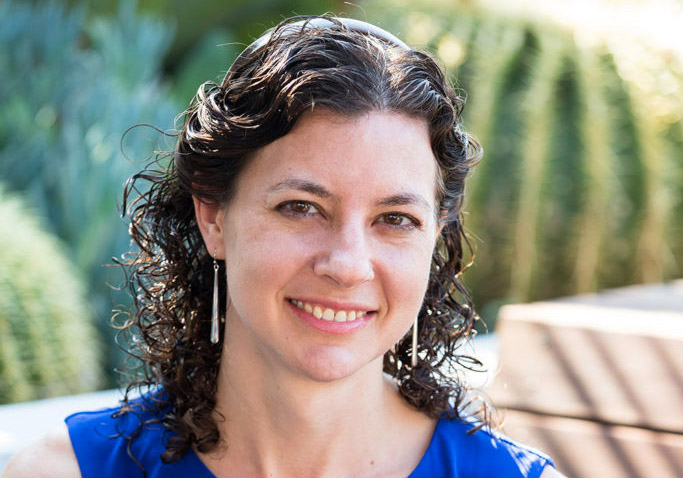Biologists Publish African Trypanosome Research
April 21, 2020
Harvey Mudd College biology professor Danae Schulz studies a parasite that causes fatal disease in humans and animals. Along with student researchers and faculty collaborators, she has published research in PLOS Neglected Tropical Diseases that investigates ways to inhibit the growth of the parasite, Trypanosoma brucei.
Schulz, Matty Walsh ’20, Ellie Naudzius ’20, Savanah Diaz ’22, Theodore Wismar ’22 and Keck Graduate Institute associate professor Mikhail Martchenko Shilman are co-authors of “Identification of Clinically Approved Small Molecules That Inhibit Growth and Affect Transcript Levels of Developmentally Regulated Genes in the African Trypanosome.” Trypanosoma brucei is a Sub-Saharan African protozoan parasite that, when transmitted to the bloodstream of a mammal through the bite of a tsetse fly, causes fatal disease in humans and animals. Existing drug therapies are difficult to administer and can have serious side effects, and resistance to some drugs is increasing, creating an urgent need for alternative trypanosomiasis therapeutics.
The PLOS paper is an extension of work Schulz published as a postdoc on bromodomain proteins. “In that work, we showed that small molecules that inhibited bromodomain proteins could push parasites that started out in the mammalian stage of the life cycle toward a form of the parasite usually found only in insects,” says Schulz. “This was therapeutically interesting, since parasites adapted for the insect stage would be expected to not survive well in a mammal. In other words, if a mammal infected with the parasites were treated with a drug that made the parasites adapted to be in the insect stage, the parasites would be maladapted for survival in the mammal, offering an opportunity for the immune system to clear the infection. That would be a big leap forward.”
Recently, Schulz and her undergraduate researchers have been trying to determine if there were other small molecules already on the market (clinically approved) that could do what the bromodomain inhibitor did, i.e., push the mammalian form of the parasite forward to the insect form.
“We tested that idea with a library of clinically approved small molecules,” Schulz says. “Since we were already going to the trouble of doing a screen, we simultaneously tested whether any of the drugs in the library would just flat-out inhibit parasite growth. We found approximately 150 that did that. We also found three drugs that did push the parasites slightly in the insect stage direction; however, it wasn’t enough of a push to be really therapeutically effective.”
Schulz plans to try again, with a more targeted approach. “This time, instead of testing a whole bunch of molecules, we’ll focus in on epigenetic inhibitors (Bromodomain proteins are epigenetic factors.). We can do this in a couple of ways. One way is to just screen a library of molecules that are known epigenetic inhibitors (bromodomain inhibitors would exist in such a library, but there would be others as well). Another that we are actively pursuing is to first ask, what small molecules bind to trypanosome bromodomains in a test tube, apart from intact parasites? Then we would go test the effects of those inhibitors in living mammalian bloodstream-stage parasites.”
For Schulz, a notable benefit of her research is the opportunity it gives her students. Matty Walsh ’20 and Ellie Naudzius ’20 were the first students to work on the project (Walsh worked on it consistently throughout her four years at HMC). Naudzius helped to engineer the parasite strain that was used for the screen, and Savanah Diaz ’22 and Theodore Wismar ’22 conducted experiments to show that some of the tested drugs affected the cell cycle of the parasites.
“Matty’s experience is a testament to what a talented undergrad can accomplish if they get into a lab early and really stick with a project,” Schulz says. “By the time Matty was interviewing for graduate school—she got into UC Berkeley’s molecular and cell biology program, one of the best molecular biology programs in the country—she was the first author on an accepted publication, and there is probably nothing that could top that on an application. From my perspective, the best thing to have on a resume is a finished (ideally published) project.”
